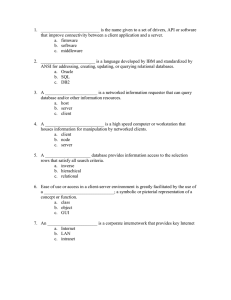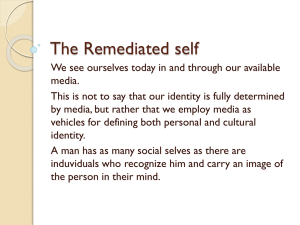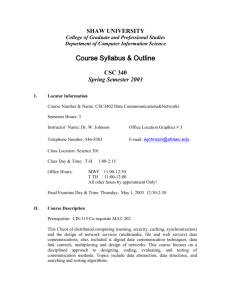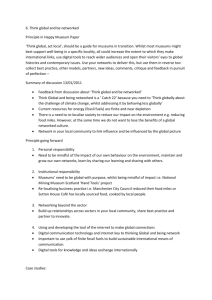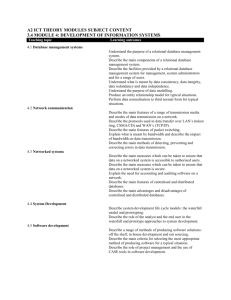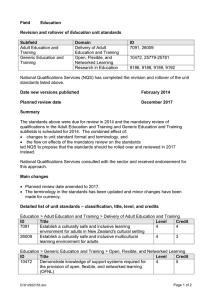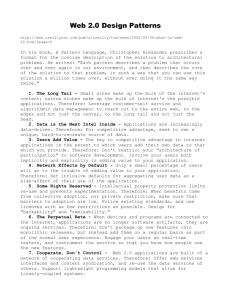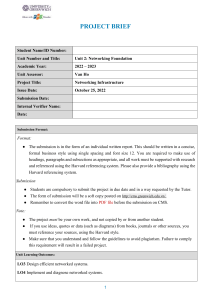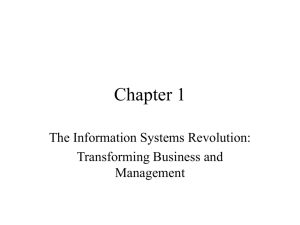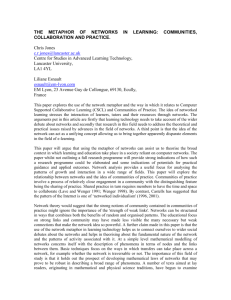Politics and Policies in a Networked World: A Perspective from
advertisement
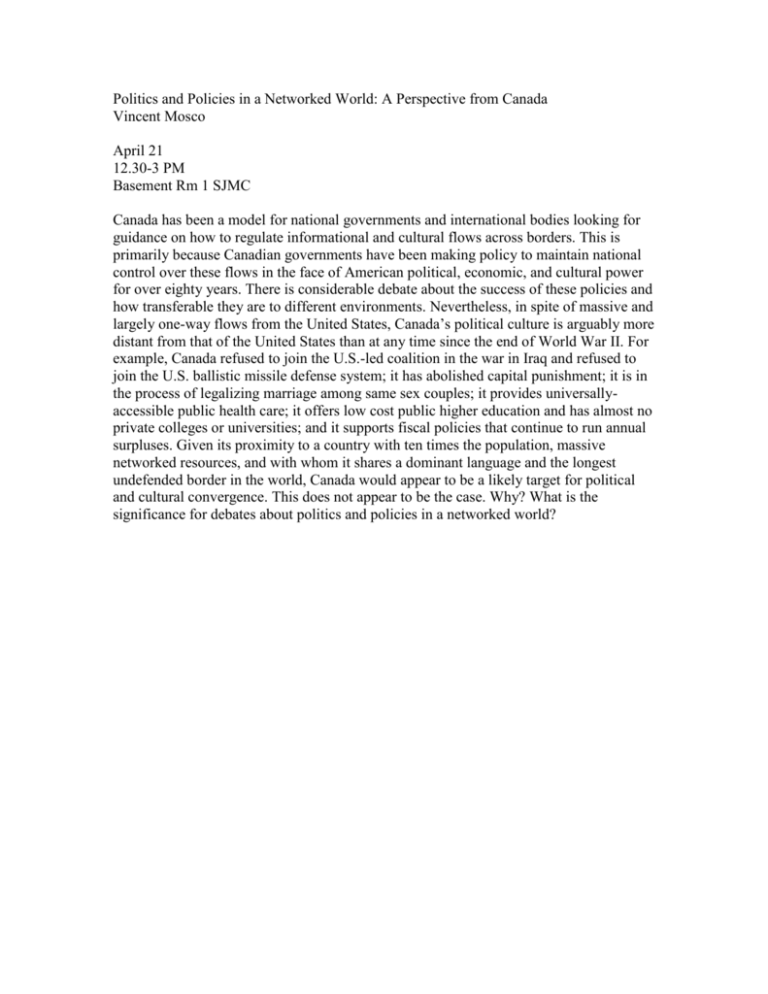
Politics and Policies in a Networked World: A Perspective from Canada Vincent Mosco April 21 12.30-3 PM Basement Rm 1 SJMC Canada has been a model for national governments and international bodies looking for guidance on how to regulate informational and cultural flows across borders. This is primarily because Canadian governments have been making policy to maintain national control over these flows in the face of American political, economic, and cultural power for over eighty years. There is considerable debate about the success of these policies and how transferable they are to different environments. Nevertheless, in spite of massive and largely one-way flows from the United States, Canada’s political culture is arguably more distant from that of the United States than at any time since the end of World War II. For example, Canada refused to join the U.S.-led coalition in the war in Iraq and refused to join the U.S. ballistic missile defense system; it has abolished capital punishment; it is in the process of legalizing marriage among same sex couples; it provides universallyaccessible public health care; it offers low cost public higher education and has almost no private colleges or universities; and it supports fiscal policies that continue to run annual surpluses. Given its proximity to a country with ten times the population, massive networked resources, and with whom it shares a dominant language and the longest undefended border in the world, Canada would appear to be a likely target for political and cultural convergence. This does not appear to be the case. Why? What is the significance for debates about politics and policies in a networked world?
